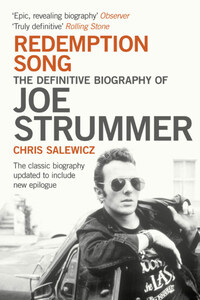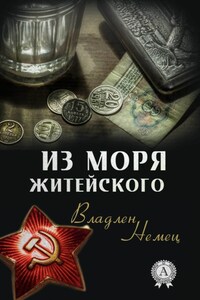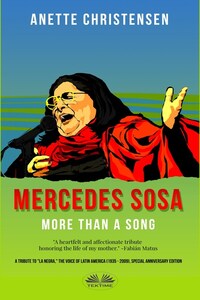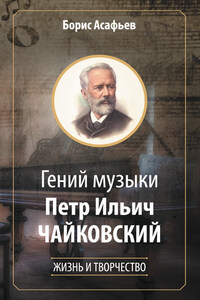This is how I heard about Joe’s death: Don Letts, the Rastafarian film director who had made all the Clash videos, called me at around 9.30 on the evening of 22 December 2002.
‘I’ve got to tell you, Chris: Joe’s died – of a heart attack.’
‘Oh-fuckin’-hell-Oh-fuckin’-hell-Oh-fuckin’-hell,’ was all I could say.
I poured a large glass of rum and stuck Don’s documentary about the group, Westway to the World, on the video. I called up Mick Jones, who in between sobs was his usual funny self, telling me how glad he was he’d played with Joe at the benefit for the Fire Brigades Union five weeks before.
‘I don’t even know what religion he was,’ Mick said.
‘Some kind of Scottish low-church Presbyterian, I imagine,’ I suggested.
‘Church of Beer, probably,’ laughed Mick, tearfully.
I went to bed late, and although I hardly slept I didn’t get up until around 9.30. At around 9.55 the phone rang: ITN News. Could they interview me for the 10.00 bulletin? I sat down on the sofa and made some quick soundbite-sized notes. I’m not even sure what I said. The phone rang again: the Independent wanted me to write an obituary, a long one, 2,000 words, by 4 o’clock. I started up the computer, opening up my assorted Strummer files, pulling out quotes and phrases. Then the phone rang once more: ITN News again. Could they send a car for me to be on the 12.30 News? Call me back in a minute, I said: I need to work out whether I can do it – the obituary is what counts most. I put the phone down. Someone’s got to do this for Joe, I thought, but I don’t want to blow the obit by doing too much. I called Joe’s home in Somerset and left a message of condolence for Lucinda, his widow.
By the time the car came for me at half eleven, I’d got a good amount done. As it always does, the TV stuff took much longer than it was meant to – they wanted to record something more for the evening news. It was 2.00 p.m. before I was home again. I still had a lot to do. But somehow time stretched, giving me many more minutes an hour than I might have expected. I e-mailed the obituary through at ten minutes to four. This is what I wrote:
The job of being Joe Strummer, spokesman for the punk generation and front-man for the Clash, never sat easily with the former John Mellor. Always prepared to give of himself to his fans, he still felt a weight of responsibility on his shoulders that often made him crave anonymity, as much as the natural performer within him needed the spotlight.
But when – after a hiatus of almost a decade and a half – he returned to recording and performing with his new group the Mescaleros in 1999, it was business as usual: seemingly the same huge amounts of energy, passion and heart-on-sleeve belief that were his trademark with the Clash and that drew a worldwide audience for him and the group. After a show the dressing-room or backstage bar still would be crammed with fans and friends as Joe held forth on the issues of the day, in his preferred role of pub philosopher and articulate rabble-rouser for the dispossessed. (But even here was the endless paradox of Joe Strummer: he could argue the case for Yorkshire pitworkers or homeless Latinos in Los Angeles, but if obliged to reveal himself through any interior observation, he would generally freeze. Even other members of the Clash would complain about his hopelessness at soul-baring.)
Yet when he played a show at London’s 100 Club two years ago, he was so exhausted afterwards that he had to lie down on the floor of the dressing-room: his Mescaleros’ set included a good percentage of Clash songs, and you worried that the frenetic speed at which they were performed would test the health of a man approaching his fiftieth birthday. In an irony that Joe Strummer no doubt would have appreciated, his death last Sunday afternoon came not from the stock rock’n’roll killers of drugs, drink or travel accidents, but after taking his dog for a walk at his home in Somerset: sitting down on a chair in his kitchen, he suffered a fatal heart attack. [I later learnt it was in his living-room, and it was ‘dogs’, not ‘dog’.]














